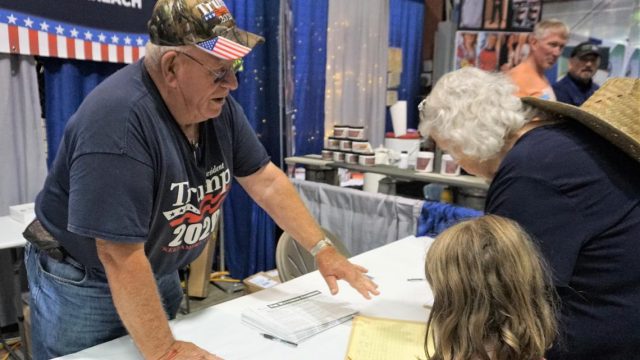We Should Allow More Time for Referendum Campaigns

As of yesterday all three referendum campaigns started by Dickinson citizen activist Riley Kuntz have failed.
He was trying to refer an appropriation for the Theodore Roosevelt Presidential Library, an expansion of the open records exemption for legislative emails, and a limit on the powers of the state auditor to the statewide ballot for a veto vote.
Yesterday the deadline for the final petition, regarding the auditor, came and went. When I initially wrote about it I didn’t know how many signatures had been collected for the auditor referendum.
Last night Kuntz told me. He said they got 8,912 signatures “with a few stragglers.”
[mks_pullquote align=”left” width=”300″ size=”24″ bg_color=”#ffffff” txt_color=”#000000″]It’s the electorate’s veto, and in North Dakota it ought to be easier to wield.[/mks_pullquote]
That’s well short of the more than 13,400 needed to make the ballot. With a few more weeks, the campaign might have been successful.
Unfortunately, activists pushing a referendum campaign have an extremely tight timeline. Speaking to the auditor referendum, specifically, they had 90 days from the date the original legislation was filed with the Secretary of State’s office, which was May 2. But it’s not like petitioners really get all of those 90 days. Unless they have a referendum campaign ready to go on the day the legislation is filed – unlikely for the sort of volunteer, citizen-led initiatives most of us think of in this context – it’s going to take them some time to get organized.
Kuntz got his petition filed for approval with the Secretary of State by May 24. But then law gives the Secretary of State time to approve the petition for circulation. In this instance, current Secretary of State Al Jaeger had until June 5.
Jaeger’s office approved the petition on that date, meaning 34 days of the 90 allowed by law for a referendum had already been chewed up before Riley and his fellow volunteers could record even one signature.
When you consider that the signature requirement for a referendum is the same as for an initiated measure to amend state statute, and that initiated measures get a full year to get the qualifying signatures, you begin to see the problem.
You readers know I am not a fan of initiating measures. Creating new law at the ballot box is a terrible way to create public policy in that it allows interests with deep pockets to hire petitioners and short-circuit the usual legislative process with all of its incumbent scrutiny and checks-and-balances across multiple branches of state government.
I would end the initiated measure process if I could. But I do like referenda, in that it serves as another check-and-balance on the traditional legislative process. It’s the electorate’s veto, and in North Dakota it ought to be easier to wield.
I wouldn’t lower the signature requirement, and I’m not sure we need to give a full year for a referendum campaign, but I think we could have a wider window than we have now. Maybe we should start the clock ticking for a referendum at the time the Secretary of State approves a petition for circulation. Or maybe we should push the whole timeline to 120 days, or longer.
I’m open to a debate on what should be done, but the status quo too severely limits the process.




